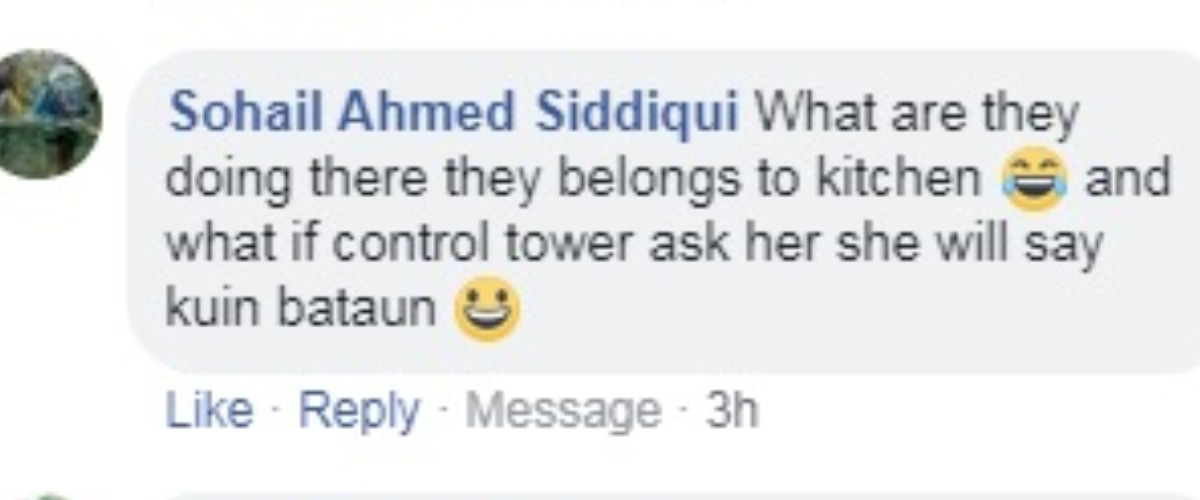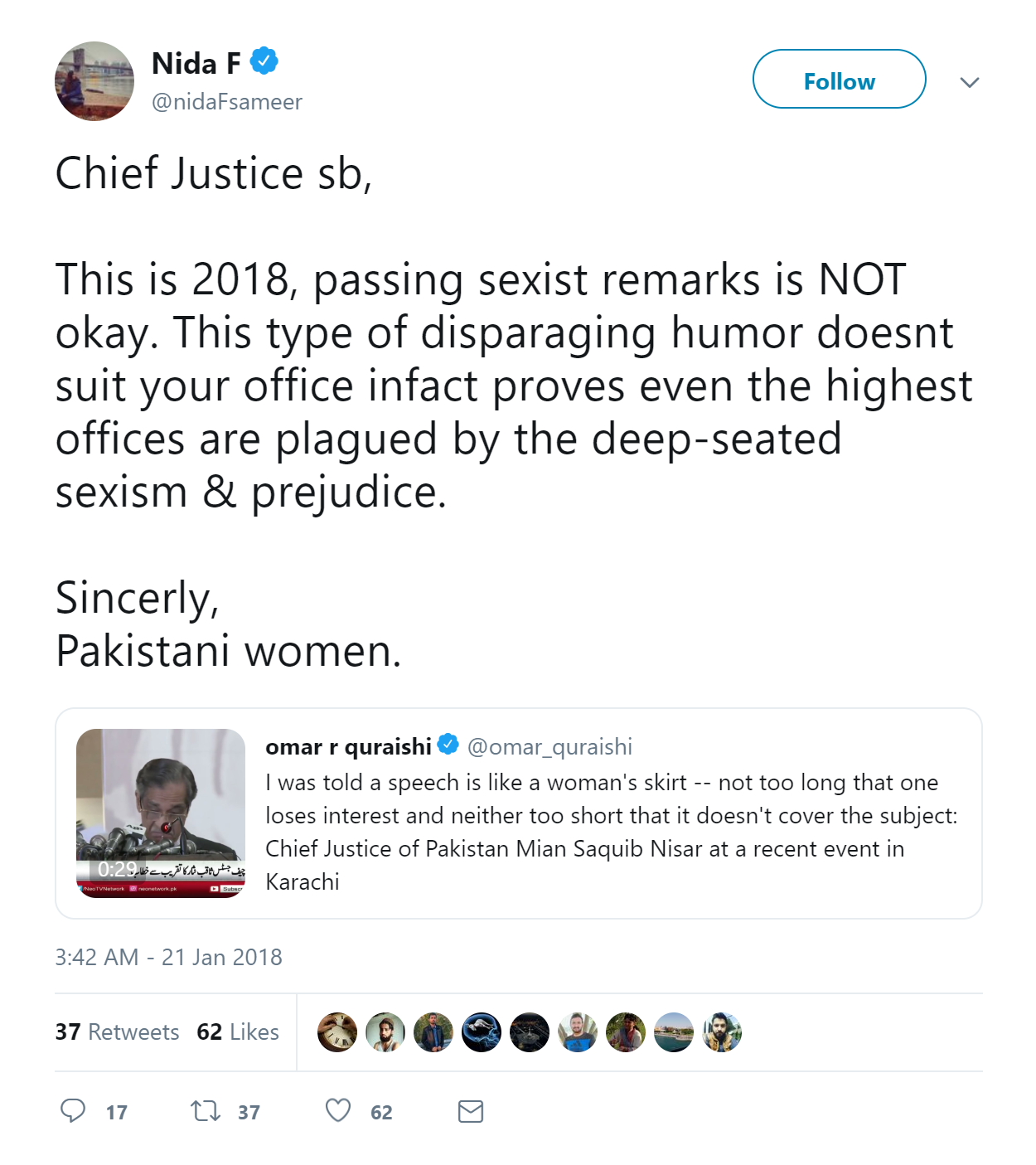How to tell if someone in your life is not a friend to women
This article was originally published on 31 December, 2018.
Let's be honest: 2018 was a harsh year because it stripped away the illusions we carried about the people we loved or respected.
As the #MeToo movement landed in Pakistan and India, an increasing number of men and women came forward to level allegations of sexual abuse, harassment or misconduct against public figures who were previously venerated.
In India, prominent editor and politician MJ Akbar stepped down from his post after multiple women accused him of harassment, Bollywood bigwigs like Alok Nath and Nata Patekar were accused of harassment, and even the supposedly 'woke' members of comedy group AIB were accused of misconduct.
In Pakistan, allegations of sexual harassment were levelled against Ali Zafar, former Patari exec Khalid Bajwa, Junaid Akram, Faisal Edhi and more.
However, the shockwaves caused by these allegations weren't restricted to the entertainment industry. These allegations of harassment, and how they were discussed and perceived by the general public, crept into conversations at home, in the workplace, and among friends.
In the process, a vast split of opinion was exposed and victims of harassment were forced to confront the uncomfortable reality that those closest to them may not stand up for them if they chose to speak out.
Also read: When it comes to harassment, why can't we place blame where blame belongs?
At times, during conversations with family or friends, women were forced to ask themselves the question: will this person stick up for me if I raised my voice as part of the #MeToo movement? And if not, do they really have my best interests at heart?
Ultimately, what began as a conversation about harassment has become a conversation about how the world perceives women. We can't deny that we saw an uptick in online abuse hurled at women who dared to speak up about the #MeToo movement and their rights, forcing us to question why people just seem to hate women so much.
So how do you know who to trust?
Much, much more conversation is needed so that we can begin to bridge the divides between us. However, before that, it is useful to identify WHO we need to have these conversations with.
So if you see someone in your life exhibiting these behaviors... it may be time for you to sit them down for a chat.
1) They have trouble praising female achievements
It's no secret that in our current societal setup, ambition in a woman is viewed as a bad thing. We see it in our TV dramas where the 'heroine' is the stay-at-home mom or the long-suffering spouse and the 'negative personality' is the cut-throat working woman.
We also see it in our families, where working women are often looked down upon for 'neglecting' their families.
A quieter, less obvious manifestation of this belief is people 'choking' on their praise for a woman. Watch out for people who always qualify their praise of women, saying things like "She performed well BUT it would have been better if..."
Another dead giveaway is when people refuse to give women credit for their achievements. Also a way to gauge if someone has trouble praising women is to check whether they address women by their proper titles at work.
Have you noticed that some people have trouble introducing a woman as a CEO or manager, saying instead that a woman "runs this department," or "looks after finance"... when the honest truth is that she's the Chief Financial Officer?
This lack of respect for women's authority/accomplishments is very obvious in politics, where women are routinely disrespected in the national or provincial assemblies.



Both women and men can be guilty of this, and a quick fix is to correct them on the spot.
Still, this troubling tendency to avoid giving a women due credit for the position she's achieved can point to a bad attitude towards women in general.
2) They often lapse into casual sexism
Growing up in a patriarchal society, we've all internalized sexism on some level. Where some people are openly sexist, others only reveal their inherent bias under pressure, or worse, in the guise of 'humour'.
For example: during a discussion or argument, if someone uses gender as a trump card, saying "Oh, you're a woman so I guess you won't understand," -- that's casual sexism.

If someone makes a joke in a professional setting about how women "talk too much" -- that's casual sexism.

If you realise that your male officemates always ask you to place the order for food or clean up after lunch or make tea because you're the only woman on the team -- that's casual sexism.
We have to accept that someone who is casually sexist only needs to make a small leap to get to full-blown misogyny.
3) They think 'reverse sexism' is a thing
We all know this person - the guy (or girl) who, when a conversation about women's rights comes up, says "Yaar but men are oppressed too! What about the men!"
Inequality exists in every aspect of society, and no one is saying that men don't have their share of grievances. However, sexism is not one of them. (Read this for more insight into why reverse sexism is not a thing).
People who are quick to shift the focus of the discussion to men don't realise that they're robbing women of the very small space for conversation that's only recently been created for them. These people need to put their own insecurities on the back burner and just listen.
Read on: Why it's important for Pakistani men to talk about the #MeToo movement
4) They have trouble believing women
This is perhaps the quickest way to tell if someone is a friend to women or not.
When a conversation about harassment comes up, does the person you're talking to bring up "false accusations?" Do they begin questioning the intentions of the women who level allegations of harassment, accusing them of wanting "sasti shorat (cheap publicity)?"

The reality is that women have more to lose by coming forward with stories of harassment than they have to gain. Women who come forward are sued, bullied online, forced off social media and sometimes, ostracized by their families.
False accusations comprise a VERY small percentage of rape or harassment allegations, yet many people cling to this narrative that women are telling falsehoods.
Actually, in this case the only falsehood is the one patriarchy has fed us.
This attitude stems from the lies patriarchy has taught us: that women are unreliable narrators, untrustworthy, scheming and manipulative.
Another manifestation of this belief is the incessant call for women to "show proof" of harassment, without recognising that most harassment takes place in person, out of sight, away from camera that can capture the moment.
If you want a woman to wear a GoPro at all times just so she can 'prove' harassment... you may have a problem with women.
5) They complain about the 'friendzone'
This may sound simplistic but: people who aren't friends to women don't want to be friends with women.
Is a man in your life obsessed with avoiding the "friendzone"? It might be worth it to ask him why. Yes, we all want healthy love lives, but if the woman you like doesn't want to be romantically involved with you, why is it so horrible to be friends with her instead? If you liked her enough to be her boyfriend, isn't she good enough to be your friend?
What's so bad about being friends with women?
If being friends with a woman is an insult to you... you may have a problem with women.
6) They don't call out their friends when they behave badly
This is easy to spot. If someone disrespects you in front of a friend and that friend doesn't stand up for you... are do they really have your back?

And while it is not necessary for every friend to call out harassers publicly, in bad times a private phone call or text or email does the trick. It's a lot better than silence.
7) They have trouble acknowledging how toxic masculinity hurts them too
When women talk about the toxic traits that come with hyper masculinity, it is met with backlash under the assumption that this is hatred towards men.
However, standing against toxic masculinity is NOT the same thing as criticising men. Instead it is a criticism of patriarchal society and the expectations of men that come with it.
Related: 9 important questions we want to ask Pakistanis who hate women's rights movements
Growing up with a problematic cookie cutter model for the perfect man has clearly had a negative impact on the male human species. Vulnerable emotions are termed as 'weak' and suppressed and the result is damaging to both men and women. For men to ignore it is as toxic as the traits attributed to it.
If someone in your life refuses to accept that toxic masculinity is a thing, they'll probably have an issue recognising how it affects women.












Comments